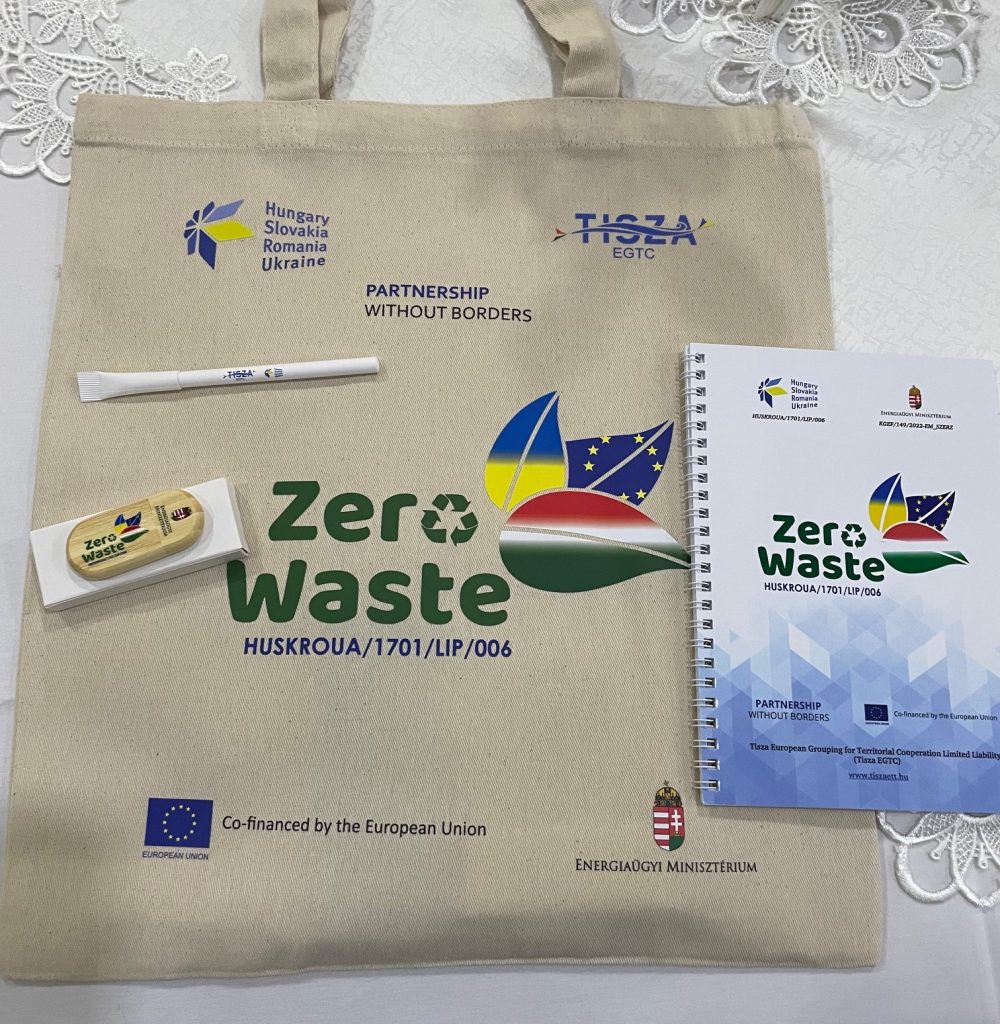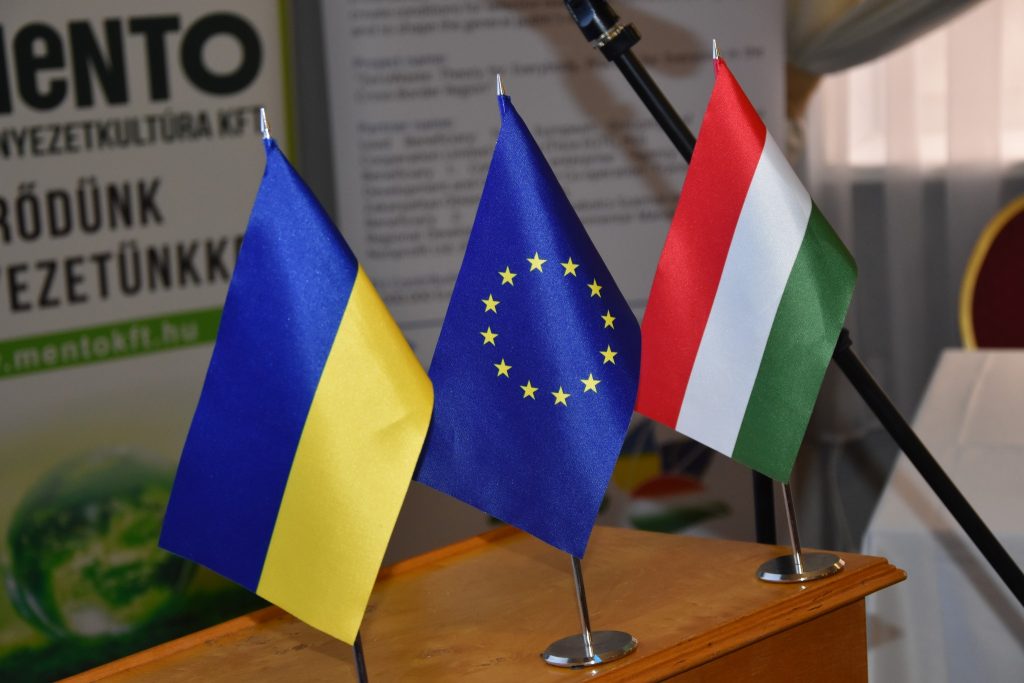
On 18 December, the final conference of the project HUSKROUA/1701/LIP/006 “Zero Waste: Theory for Everybody, Practice for Everyone in the Cross-Border Region”, implemented under the European Neighbourhood Instrument’s Cross-border Cooperation Programme Hungary-Slovakia-Romania-Ukraine 2014-2020, took place in the village of Janosi, Ukraine.
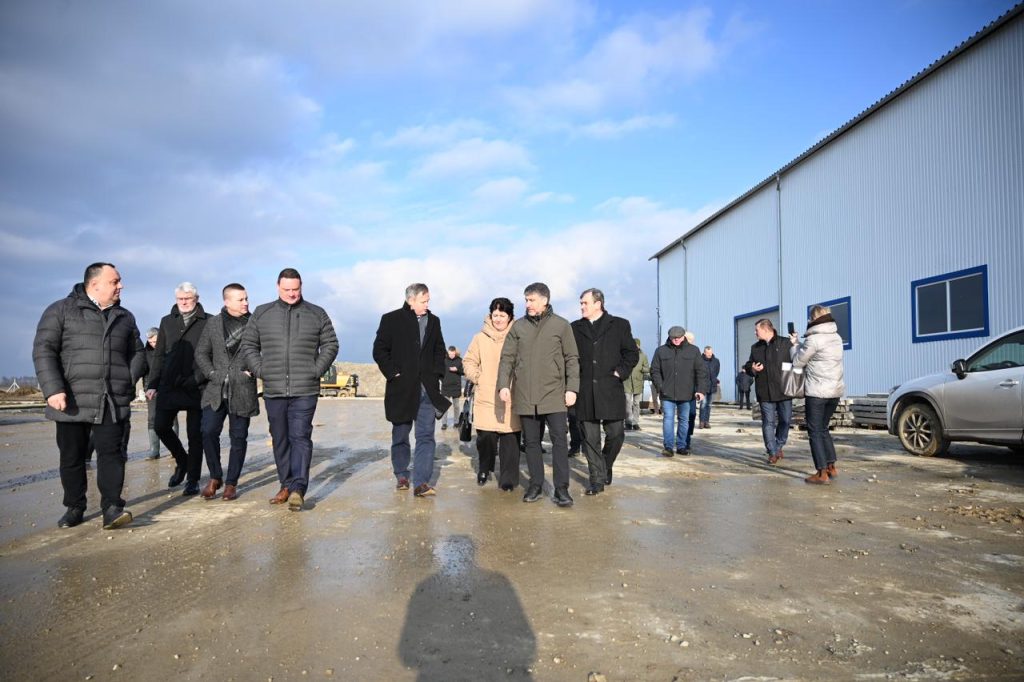
Director of the Joint Technical Secretariat, Áron Szakács, underlined that waste management is one of the priority in the Programme activity and needs of the special attention in the Region. By implementing this project the Programme had invested to the better and more effective waste collecting and management in the Region. For the project purposes was allocated 5 000 000 EUR from Programme Budget.
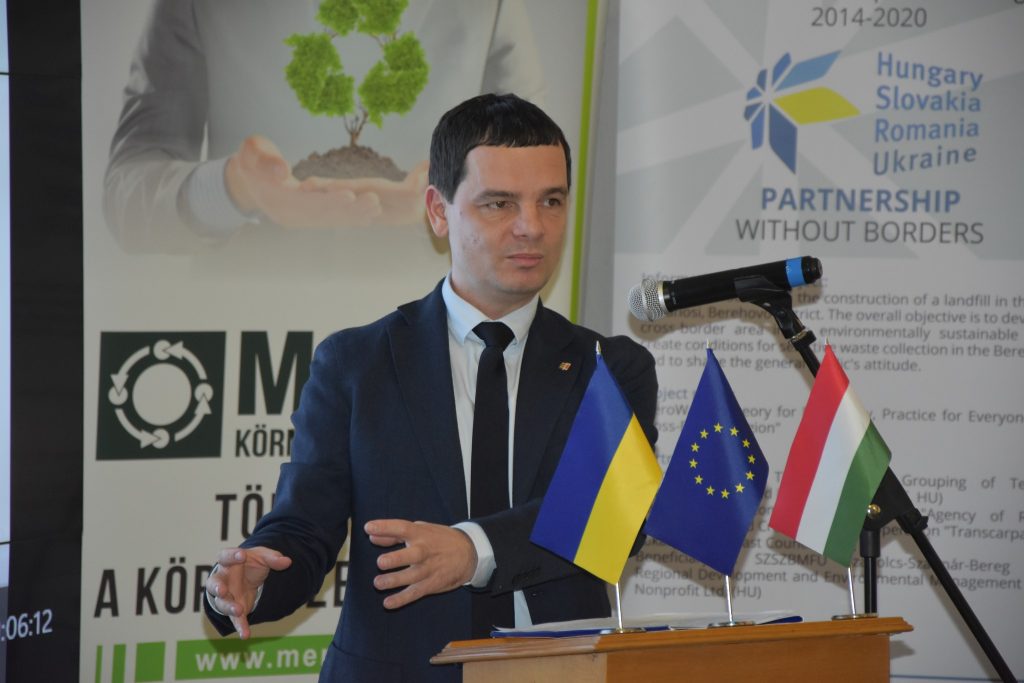
He also expressed hope that a municipal structure – Assossiation – which was created to manage the plant, will show it as a model of the best European experiencer to grantors. This, in his opinion, should become a precedent that would allow us to work on further similar projects, not only in Zakarpattia. He thanked the Regional Council and the Regional Military Administration for their cooperation.
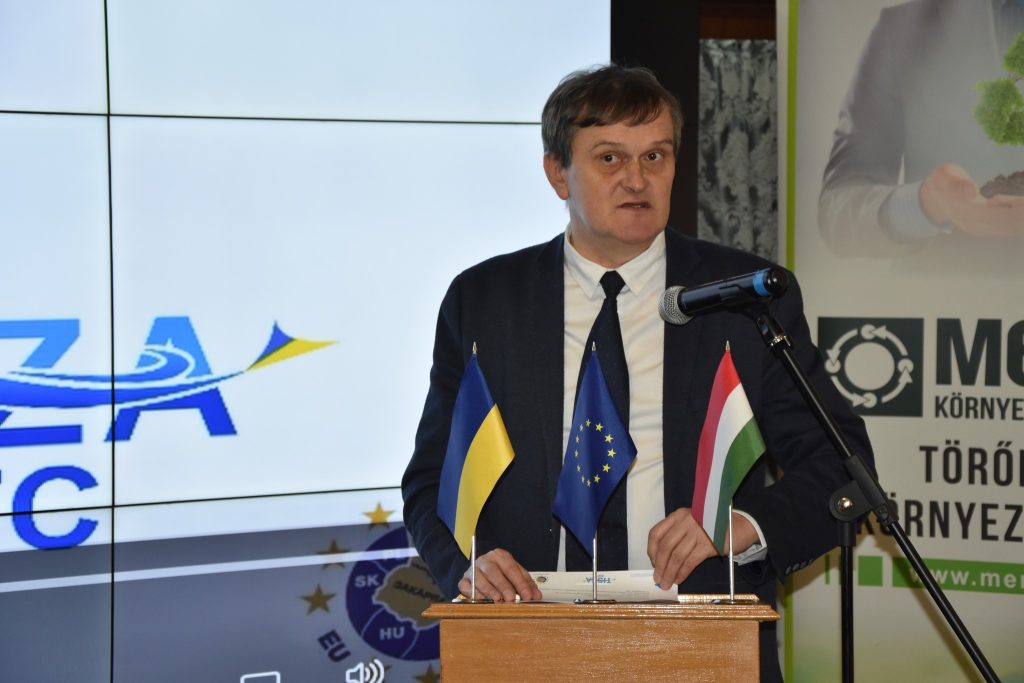
Áron Szakács noted that in the cross-border area the increasing amount of not properly managed waste constitutes a serious risk to human health and to the environment, and that such risk cannot be contained satisfactorily by the present waste management methods. The existing problems with waste collection, recycling and disposal are acute. The pollution of the ground water and the river Tisza and its tributaries, which flow in Ukraine and in bordering countries – Slovakia and Hungary, indicate the need for a comprehensive approach to solving the problem of waste management in the cross-border area.
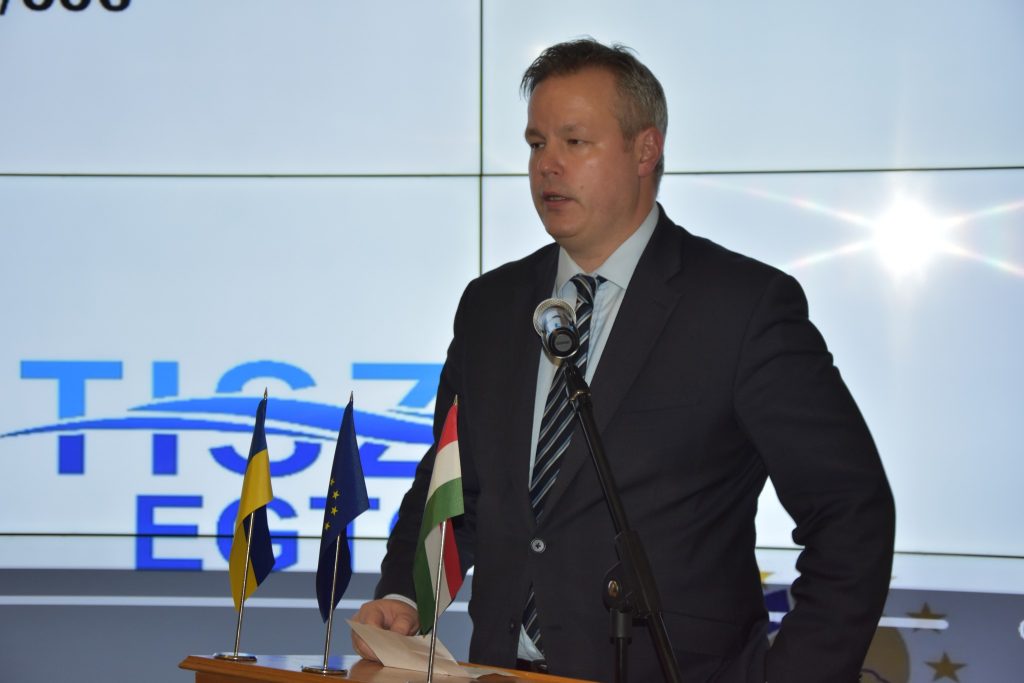
These problems highlight a fairly critical picture. Main specific objective of the project is to reduce the risks caused by waste on the quality of waters and land. Reaching this goal can help in the environmentally sustainable development of the joint cross-border region on the external border of the EU, as the overall objective of the project. The Project includes construction of landfills for the waste storage, creation of a network of points for solid waste collection.
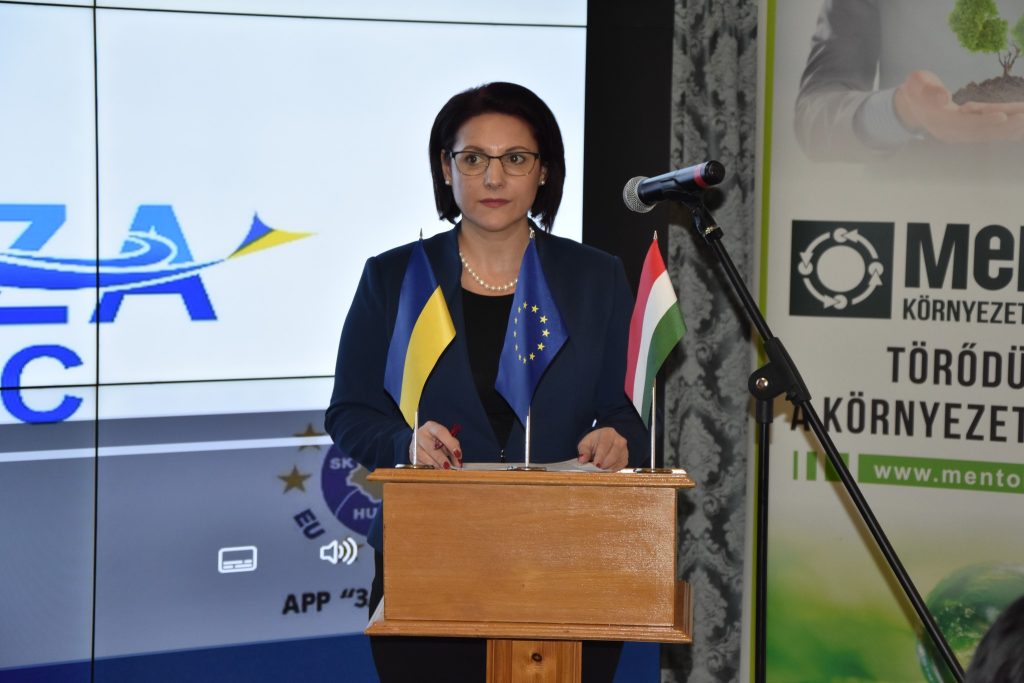
The Project’s aim is to establish a complex intervention and to establish a sustainable, environmentally conscious waste management system, that will handle the deeper problems, not just the problems surfaced.
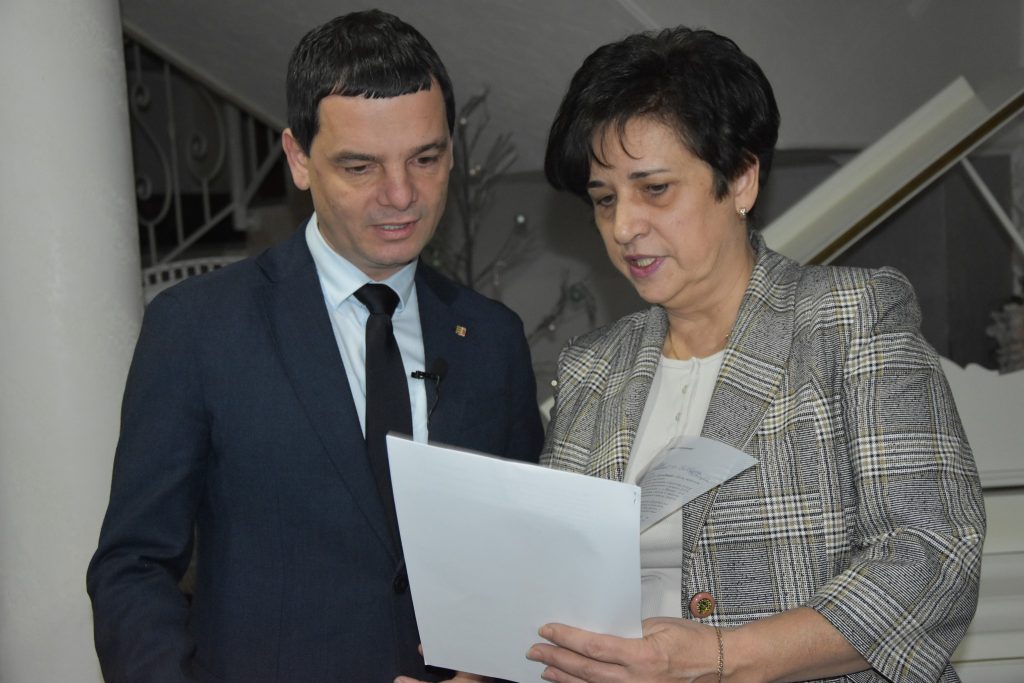
As “Zero Waste” is an integrated project, its implementation approach carries several cross-border characters: reduction of pollution in UA by establishment of waste management facilities and raising awareness for changing in attitude will help in reduction of pollution in HU as well (land and rivers are forming a ‘coherent area’ between the countries). Raising awareness in the target area and communicating an environmentally conscious attitude among inhabitants will contribute to the long-term solution of the problem.
